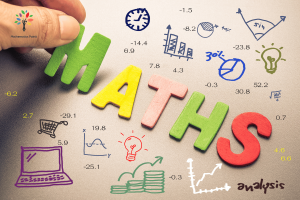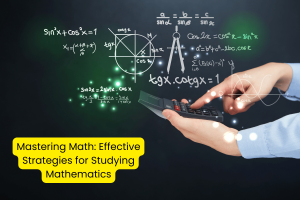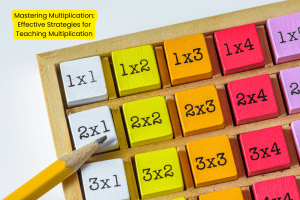Mathematics is not just a subject that is confined to your classrooms or textbooks, it is a very important part of your everyday life. From calculating grocery bills to understanding statistical data, mathematics skills play a very important role in navigating the complexities of modern society. Additionally proficiency in mathematics is basically a very important determinant of economic success across various disciplines. In this guide you can learn everything about the importance of mathematics skills in everyday life and academic success.
Change Your Mindset
Yes, mathematics anxiety can hinder your ability to learn excellent mathematics. You need to acknowledge and address the anxiety to cultivate a positive attitude towards math. One approach is to identify the root causes of anxiety whether it stems from past negative experience or fear of failure. You need to embrace a growth mindset which includes recognizing that intelligence and abilities can be developed through dedication and effort. By reflecting challenges as opportunities for growth and learning you can approach math with resilience and determination.
Master the Basics
- At the core of mathematical proficiency is a fundamental arithmetic operation like addition, subtraction , multiplication. By reviewing and reinforcing these basic concepts you can lay a foundation for tackling more advanced mathematical concepts.
- Fractions, decimals and percentages are important in everyday life from calculating discounts to interpreting financial data. You need to understand the financial relationship and properties for practical applications.
- Algebra forms the bases of several mathematical concepts and problem solving techniques. Mastery of algebraic fundamentals including solving equations, inequalities and word problems is very important for advancing mathematics.
- Geometry encompasses the study of shapes, angles and other relationships. You need to be familiar with John metric properties and concepts as it allows you to analyze and visualize objects in both two and three dimensions
Effective Study Techniques
- You need to practice constantly to master the man’s skills and engage in daily math exercises and problems.
- Complex problems can often seem challenging at first glance but breaking them down into smaller more manageable steps facilitates problem solving and improves comprehension of underlying principles.
- Memorization plays a very important role in learning mathematical formulas. Flash cards Can help you in retention and recall making it very easy for you to internalize essential information.
- Studying math in groups provides you an opportunity to collaborate with your friends, share insights and reinforce the learning through discussion and explanation.
Explore Online Resources
- The Internet offers plenty of educational resources and interactive tools for learning mathematics. Websites and apps provide you access tutorials practice problems and instructional videos tailored to various learning styles.
- Online resources and tutorials offer a structured approach to learning mathematics covering topics ranging from basic arithmetic to advanced calculus.
- Gamified learning platforms and math puzzles can make learning more engaging and enjoyable. By incorporating elements of competition and rewards games can help you reinforce mathematical concepts while fostering a sense of achievement.
Seek Help When Needed
- You need to seek guidance from teachers or tutors as it can provide you customized support and clarification on challenging concepts. Teachers can offer explanations tailored to your learning styles and provide you additional practice opportunities.
- You can join a math study group that allows for collaborative learning and peer support. The group members can share strategies, discuss problems and provide encouragement to overcome difficulties.
- The online forums and communities provide a platform for asking questions, sharing resources and connecting with fellow math enthusiasts.
Practice Mental Math
- Developing proficiency in mental math allows you to perform calculations quickly and accurately without being dependent on pen and paper or calculators. Practicing mental managers improves your computational skills and improves your numerical fluency also.
- Different mental math techniques like estimation rounding and breaking numbers into manageable parts can simplify your complex calculations.
- Applying mental math skills to real life scenarios like calculating tips or estimating expenses can help you reinforce the relevance and practicality of mathematics.
Stay Organized
- You need to keep a math journal or notebook as it allows you for organized note taking problem solving and concept mapping. Documenting mathematical ideas and strategies facilitates review and reflection promoting deeper understanding and retention.
- You need to maintain a reference sheet or index of key formula theories as it facilitates quick access to essential information during problem solving. You need to regularly review and practice formulas as it reinforces your memory and also ensures readiness for assessments.
- Setting specific measurable goals for math learning and tracking progress over time provides you motivation and direction. You can celebrate milestones and achievements along the way as it fosters a sense of accomplishment and Encourages continued growth.
Overcome Common Challenges
- Fear of making mistakes inhibits learning experimentation. Embracing a growth mindset involves reframing the mistakes as opportunities for learning and growth rather than sources of shame or failure.
- Building confidence in math requires patience, persistence and positive reinforcement. Encouraging self-belief and celebrating small victories can improve your confidence and instill a sense of competence.
- Repetitive practice is very important for mastery but it can also lead to boredom and disagreement. So incorporating variety into steady routines like alternating between different topics or using different resources keeps learning fresh and stimulating.
Apply Math to Real Life
- Mathematics play a very important role in budgeting, financial planning and decision making. You need to understand concepts like income expenses, interest and investment which empower you to make informed financial decisions.
- Cooking includes precise measurement and conversions making it a perfect opportunity to apply mathematical concepts like fractions ratios and proportions. Developing culinary skills can improve your math proficiency and also promote creativity and practical life skills.
So you need to know that mastering math is not just about memorizing formulas for solving equations, it’s all about developing problem-solving skills, critical thinking abilities and a deep understanding of mathematical concepts. By following the tips and tricks given here you can overcome challenges and cultivate a positive mindset to achieve proficiency in mathematics.






